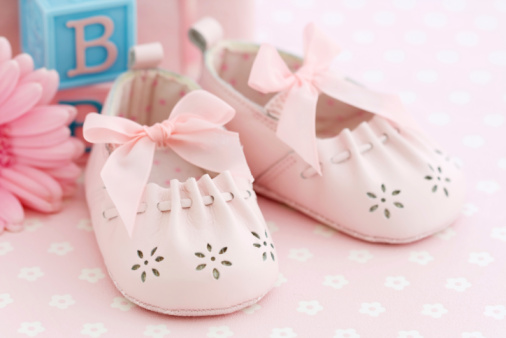 19. One should be pleased with the decree of Allah Ta‘ala whether one is blessed with a son or a daughter.
19. One should be pleased with the decree of Allah Ta‘ala whether one is blessed with a son or a daughter.
Allah Ta‘ala mentions in the Qur’aan Majeed:
يَهَبُ لِمَن يَشَاءُ إِنَاثًا وَيَهَبُ لِمَن يَشَاءُ الذُّكُورَ ﴿٤٩﴾ أَوْ يُزَوِّجُهُمْ ذُكْرَانًا وَإِنَاثًا وَيَجْعَلُ مَن يَشَاءُ عَقِيمًا ۚ إِنَّهُ عَلِيمٌ قَدِيرٌ ﴿٥٠﴾
He (Allah Ta‘ala) grants female offspring to whom He wills, and He grants male offspring to whom He wills, or He combines for them both male and female offspring (for whom He wills), and He makes whom He wills barren (infertile for having offspring). Surely, He is All-Knowing, Very-Powerful.
20. When giving gifts to one’s children, parents should treat their children equally. It is reprehensible for parents to favour some children over the other children without a valid reason. However, if there is a valid reason, it will be permissible for parents to give some children more than the others e.g. if among the children, there are some who are more needy than the others, it will be permissible to give them more.
عن الشعبي قال: سمعت النعمان على منبرنا هذا يقول: قال رسول الله صلى الله عليه وسلم: سووا بين أولادكم في العطية كما تحبون أن يسووا بينكم في البر (شرح معاني الآثار، الرقم: 5836)
Hazrat Nu’maan bin Basheer (radhiyallahu ‘anhu) reports that Rasulullah (sallallahu ‘alaihi wasallam) said, “Treat your children equally when giving them gifts, just as you would like them all to be the same in them showing you obedience and kindness.”
وقال النبي صلى الله عليه وسلم: اعدلوا بين أولادكم في العطية (صحيح البخاري في ترجمة الباب- باب الهبة للولد)
Rasulullah (sallallahu ‘alaihi wasallam) is reported to have said, “Exercise equality between your children when giving them gifts.”
21. There are great virtues mentioned in the Mubaarak Ahaadith for the one who is blessed with daughters, and he takes good care of them, treating them with kindness, compassion and love, and he gives them an Islamic upbringing.
In the pre-Islamic era, the Arabs used to prefer their sons over their daughters. They would be cruel and mean towards their daughters, and some would even bury them alive.
Islam had strongly condemned this hostility and ill treatment towards daughters and promised great rewards for those who show kindness and compassion towards them and fulfil their rights.
The Hadith has also promised Jannah for the person who is blessed with three daughters, he fulfils their rights with kindness and compassion, and he is also concerned about their Islamic upbringing.
عن أبي سعيد الخدري، قال: قال رسول الله صلى الله عليه وسلم: من عال ثلاث بنات، فأدبهن، وزوجهن، وأحسن اليهن، فله الجنة (سنن أبي داود، الرقم: 5147)
Hazrat Abu Sa’eed Khudri (radhiyallahu ‘anhu) reports that Rasulullah (sallallahu ‘alaihi wasallam) said, “The one who takes care of three daughters, teaches them the correct aadaab of deen (i.e. he teaches them the Islamic etiquettes and gives them the correct Islamic upbringing), gets them married, and he is good towards them (even after getting them married), then for him will be Jannah.”
وعن أنس أن رجلا كان عند النبي صلى الله عليه وسلم فجاء ابن له فقبله وأجلسه على فخذه، وجاءته بنية له فأجلسها بين يديه فقال رسول الله صلى الله عليه وسلم: ألا سويت بينهما رواه البزار فقال: حدثنا بعض أصحابنا ولم يسمه، وبقية رجاله ثقات. (مجمع الزوائد، الرقم: 13489)
Hazrat Anas (radhiyallahu ‘anhu) reports that on one occasion, a person was present by Rasulullah (sallallahu ‘alaihi wasallam) when his son came to him. He then kissed his son (on his cheek) and made him sit on his lap. Thereafter, his daughter (who was around the similar age of his son) came to him, and he made her sit in front of him. Rasulullah (sallallahu ‘alaihi wasallam) addressed him saying, “Why did you not treat both in the same way?”
عن ابن عباس، قال: قال رسول الله صلى الله عليه وسلم: من كانت له أنثى فلم يئدها ولم يهنها ولم يؤثر ولده عليها قال: يعني الذكور أدخله الله الجنة (سنن أبي داود، الرقم: 5146)
Hazrat Abdullah bin Abbaas (radhiyallahu ‘anhuma) reports that Rasulullah (sallallahu ‘alaihi wasallam) said, “The one who has a daughter, and he does not bury her alive nor does he disgrace her (or ill-treat her), and he does not give preference to his male children over her, then Allah Ta‘ala will grant him entry into Jannah.”
22. The one who is blessed with daughters, shows kindness and compassion to them, fulfils their rights and gives them an Islamic upbringing, such a person will be close to Rasulullah (sallallahu ‘alaihi wasallam) on the day of Qiyaamah and his daughters will be a barrier for him from the fire of Jahannum.
عن عائشة رضي لله عنها عن النبي صلى الله عليه وسلم: من ابتلي من هذه البنات بشيء كن له سترا من النار (صحيح البخاري، الرقم: 1418)
Hazrat Aishah (radhiyallahu ‘anha) reports that Nabi (sallallahu ‘alaihi wasallam) said, “The one who is tested with these daughters (and he fulfils their rights and treats them with kindness), they will be a barrier for him from the fire of Jahannum.”
عن أنس قال: قال رسول الله صلى الله عليه وسلم: من عال جاريتين دخلت أنا وهو الجنة كهاتين، وأشار بأصبعيه. (سنن الترمذي، الرقم: 1914)
Hazrat Anas (radhiyallahu ‘anhu) reports that Rasulullah (sallallahu ‘alaihi wasallam) said, “The one who takes care of two daughters, he and I will enter Jannah like these two (fingers), and he indicated with his two fingers (index and middle finger, showing how close they will be together in Jannah).”
عن أنس بن مالك، قال: قال رسول الله صلى الله عليه وسلم: من عال جاريتين حتى تبلغا جاء يوم القيامة أنا وهو وضم أصابعه (صحيح مسلم، الرقم: 2631)
Hazrat Anas (radhiyallahu ‘anhu) reports that Rasulullah (sallallahu ‘alaihi wasallam) said, “The one who takes care of two daughters and brings them up until they reach the age of puberty, he will come on the day of Qiyaamah in the condition that he and I will be together (as close as this), and he (Rasulullah (sallallahu ‘alaihi wasallam)) joined his fingers (showing their closeness).”
23. One should ensure that he instils the importance of observing purdah into his daughters. Purdah means that a woman conceals her entire body (with the exception of her hands till her wrists and her feet) from strange men. As far as her face is concerned, she should use a niqaab to veil her face from strange men.
In the Quraan Majeed, Allah Ta’ala commands the women to observe purdah. Allah Ta’ala says:
یٰۤاَیُّها النَّبِیُّ قُلۡ لِّاَزۡوَاجِكَ وَبَنٰتِکَ وَنِسَآءِ الۡمُؤۡمِنِیۡنَ یُدۡنِیۡنَ عَلَیۡهنَّ مِنۡ جَلَابِیۡبهنَّ (سورة الأحزاب: 59)
O Nabi (sallallahu ‘alaihi wasallam)! Tell your wives and your daughters and the women of the believers that they should draw down their ‘jalaabeeb’ (a sheet which covers the entire body) over them.
The command in this verse is extremely clear in instructing the women of this Ummah to adopt purdah and hijaab in their lives.
In this verse, the word ‘jalaabeeb’ is used which is the plural of the word ‘jilbaab’. The word ‘jilbaab’ refers to a cloth/sheet which a woman draws over her body in such a way that it covers and conceals her entire body.
Furthermore, this verse does not only command a woman to conceal her body with the jilbaab. Rather, by using the word ‘yudneena’, which means to ‘draw down’, the verse indicates that the jilbaab should be drawn over the face from above the head so that it also screens and conceals the face.
Our Ulama mention that apart from a woman exposing her eyes, she should cover the rest of her face.
عن علي رضي الله عنه أنه كان عند رسول الله صلى الله عليه وسلم فقال أي شيء خير للمرأة فسكتوا فلما رجعت قلت لفاطمة أي شيء خير للنساء قالت ألا يراهن الرجال فذكرت ذلك للنبي صلى الله عليه وسلم فقال إنما فاطمة بضعة مني رضي الله عنها (مسند البزار، الرقم: 526)
On one occasion, Hazrat Ali (radhiyallahu ‘anhu) was seated by Rasulullah (sallallahu ‘alaihi wasallam) when Rasulullah (sallallahu ‘alaihi wasallam) asked, “What is best for a woman?” All the Sahaabah (radhiyallahu ‘anhum) remained silent and nobody answered.
Hazrat Ali (radhiyallahu ‘anhu) said, “When I returned home, I informed Faatimah (radhiyallahu ‘anha) regarding the question which Rasulullah (sallallahu ‘alaihi wasallam) posed before the Sahaabah (radhiyallahu ‘anhum), and asked her the same question, ‘What is best for a woman?’
“In answer, she replied, ‘The best thing is that they do not see men and nor do men see them.’”
Hazrat Ali (radhiyallahu ‘anhu) then said, “When I mentioned her answer to Rasulullah (sallallahu ‘alaihi wasallam), he became delighted and pleased and said, ‘Faatimah is part of me.’”
 Ihyaaud Deen An Effort to Revive Deen in Totality
Ihyaaud Deen An Effort to Revive Deen in Totality



